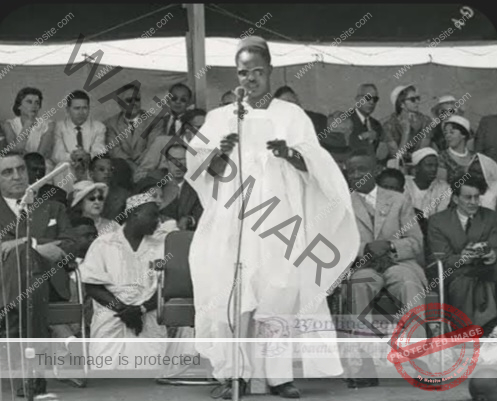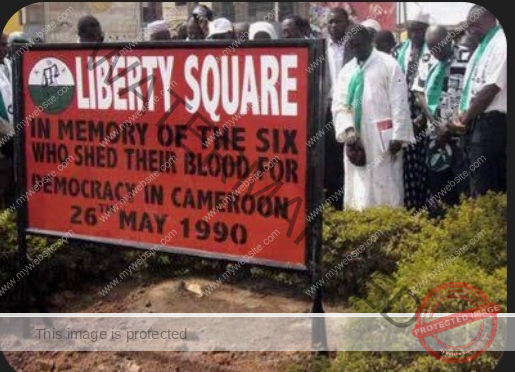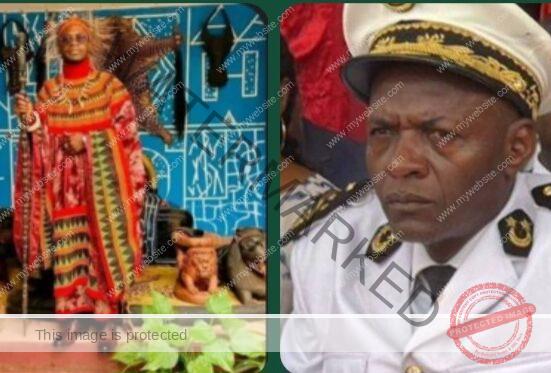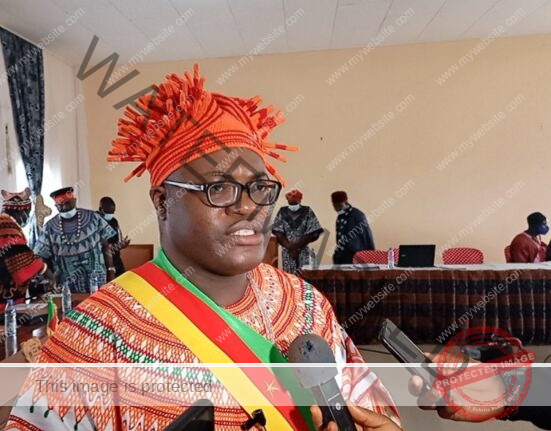Ahidjo’s words were not empty campaign slogans. They were repeated before the United Nations, captured in official records, and relied upon by a people making the most important decision of their history. In international law, such assurances carry moral and political weight.
By The Independentist Editorial Desk
In the late 1950s and early 1960s, the people of the British Southern Cameroons stood at the threshold of independence. The United Nations General Assembly, through Resolution 1608 (XV) of 21 April 1961, declared the territory ready for self-rule and called on Britain, the Southern Cameroons Government, and the Republic of Cameroun to agree on the terms of a future union before 1 October 1961, when Britain’s trusteeship would end.
At that decisive moment, Ahmadou Ahidjo, then President of La République du Cameroun, made solemn promises before the United Nations, the international community, and the people of Southern Cameroons. He assured all who listened that:
Any union would be federal in nature, never an annexation.
Southern Cameroons would keep its parliament, courts, administration, and identity.
The differences in language, education, and culture would be protected and celebrated.
The partnership would be one of equals, freely chosen, and never imposed by force.
In diplomacy, the word of a statesman is taken as seriously as a treaty. Our leaders, perhaps too trusting, believed him. Could they have imagined that a president would make such pledges in the halls of the United Nations only to reverse them once power was secured?
From Trust to Betrayal
On 11 February 1961, the people of Southern Cameroons voted in a UN-organized plebiscite to join the Republic of Cameroun rather than Nigeria. Full independence, though guaranteed by international law, was not offered as a choice. Even so, the people accepted the union, relying on Ahidjo’s repeated assurances.
But history tells another story:
1961–1972: The Federal Republic of Cameroon was born. Southern Cameroons became “West Cameroon,” with some autonomy but under growing pressure from Yaoundé.
1972: Ahidjo’s referendum abruptly abolished federalism, erasing the safeguards promised to our people.
Post-1972: Southern Cameroons was reduced to “provinces,” its institutions dismantled, its culture targeted for assimilation.
Today: Peaceful demands for dialogue and justice are met with bullets, imprisonment, and repression.
The record is undeniable: what was pledged as a voluntary partnership of equals turned into annexation by force.
The Legal and Moral Weight
Ahidjo’s words were not empty campaign slogans. They were repeated before the United Nations, captured in official records, and relied upon by a people making the most important decision of their history. In international law, such assurances carry moral and political weight.
Resolution 1608 (XV) required a negotiated treaty of union. None was ever signed.
The UN Charter and Resolution 1514 (XV) affirm the right of all peoples to self-determination.
The principle of pacta sunt servanda — “agreements must be kept” — means promises made in diplomacy are not to be discarded.
Southern Cameroons’ only “crime” has been to remind the Republic of Cameroun of the very promises its founding president made.
A Question for Yaoundé
Why should a people be punished for demanding respect for their dignity and history? Why respond to peaceful reminders of solemn pledges with military repression?
For leaders in Yaoundé, the path of honour is not denial but acknowledgment. The records remain in UN archives. History cannot be erased by decree. A more dignified outcome lies in confronting the truth, respecting promises, and seeking peace with justice.
Conclusion
This is why we fight.
Not because we hate, but because we remember.
Not because we reject peace, but because peace built on broken promises is no peace at all.
The Southern Cameroons deserves the dignity it was promised in 1961. Until those promises are honoured, the struggle remains not just political — but profoundly moral.
The Independentist Editorial Desk





















Leave feedback about this